IOS organises memorial programme on late Prof. Sanghasen Singh
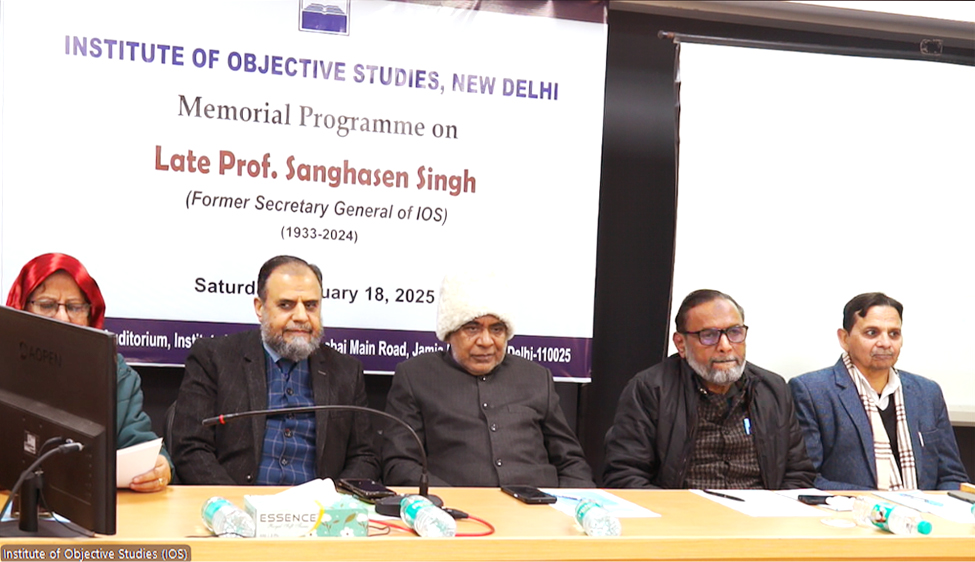
IOS organises memorial programme on late Prof. Sanghasen Singh
New Delhi: A memorial programme on late Prof. Sanghasen Singh was organised by the Institute of Objective Studies at its auditorium on January 18, 2025 in hybrid mode.
The programme began with the recitation of a verse from the Holy Qur’an by Mr. Mansoor Ahmad, in-charge of the technical section, Institute of Objective Studies.
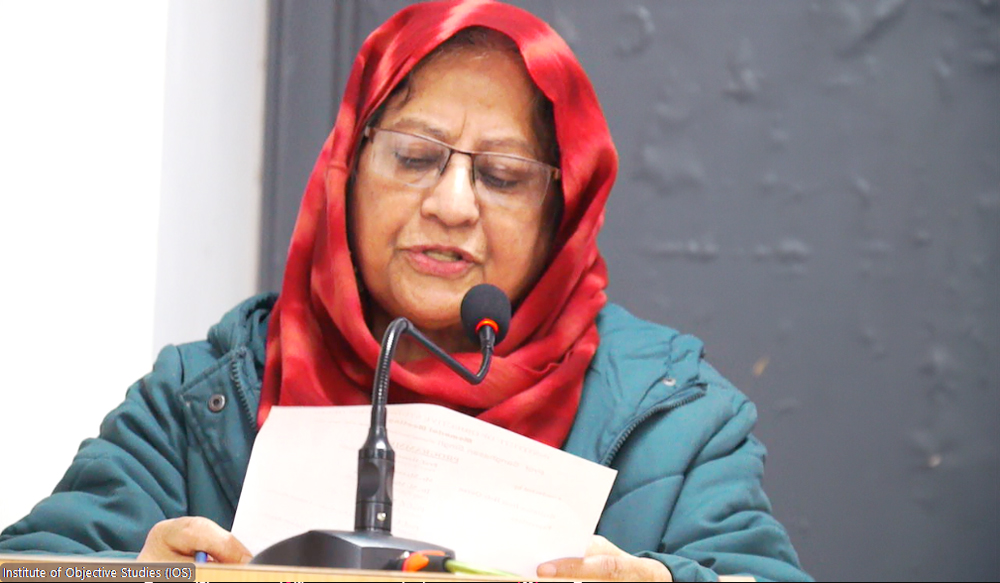
Vice-chairperson of the Institute, Prof. (Ms.) Haseena Hashia described Prof. Sanghasen Singh as a man who believed in secular values. During his lengthy association with the Institute, Prof. Singh also held the position of Secretary General. He held a number of appointments at several universities, including the University of Delhi. He excelled in Buddhist Studies and the Pali language. At various universities, a number of his students held senior positions. She stated that Prof. Singh was completely enamoured with the IOS.
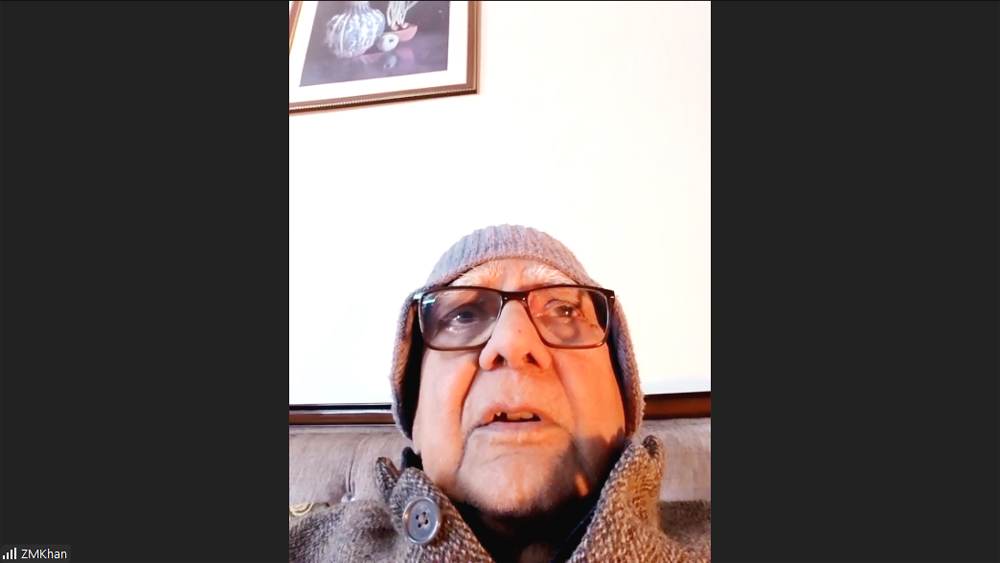
Patron of the IOS, Prof. Z. M. Khan, noted that he had been associated with Prof. Sanghasen Singh for 25 years. He was calm, quiet, serious, and sober. He really was the soil's son. He was a really well-balanced individual. He was very honest to the motherland. He exemplified decency, humility, and a demeanour that avoided offending anyone. He had a high regard for himself. He was a student of comparative religions. In fact, all facets of society held him in high regard. Everyone knew him for his manners. He claimed that Prof. Singh used to discuss about his family matters with him. He had a strong bond with his family. He assured that the Institute would continue his legacy and spread the values he stood for.
Chief Patron of the Institute, Dr. Mohammad Manzoor Alam, sent a message condoling the death of Prof. Sanghasen Singh, which was read by Prof. (Ms.) Haseena Hashia. Dr. Alam remembers his close relationship with him, which lasted till his death, in his message. According to him, Prof. Singh was a reputable scholar who firmly believed in interfaith discussion to comprehend the fundamental ideas and teachings of many religions. He mentioned about Prof. Singh's contribution to the IOS and stated that his insightful recommendations were included into a number of the Institute's projects. He pointed out that there was absolutely no iota of doubt about his qualifications as a distinguished scholar.
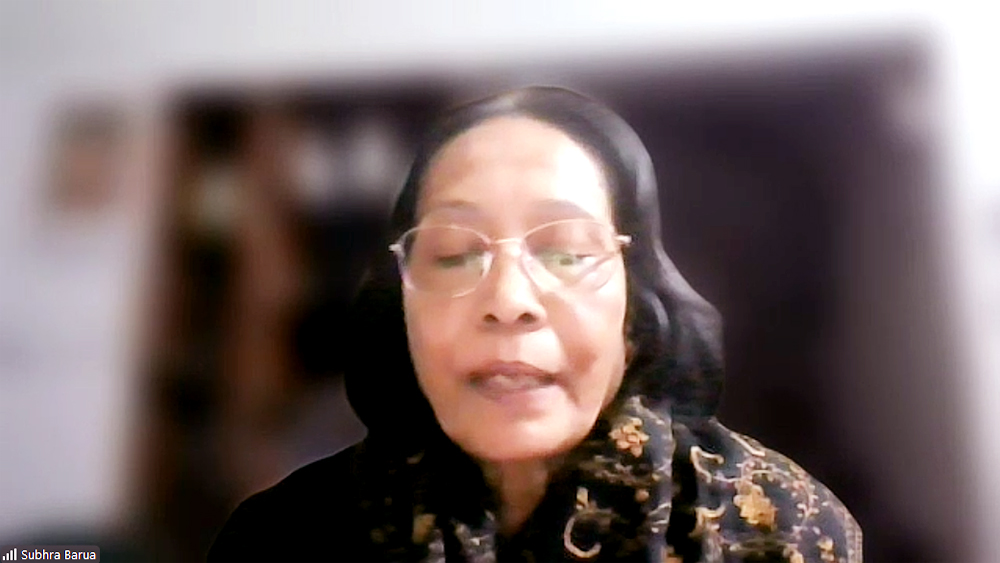
Prof. Sanghasen Singh was her teacher, according to Prof. Subhra Pavagadhi, a former professor of Buddhist Studies at Delhi University. He was a friend and mentor. He was an expert on Sanskrit and Pali languages. He introduced the world to Buddhist knowledge. He made contributions to the literature of Buddhism. The ancient literature was brought forth by him. Under his supervision, almost forty-five research scholars completed their Ph.D. Regarding his academic prowess, she mentioned that Prof. Singh authored/edited twenty-five books.
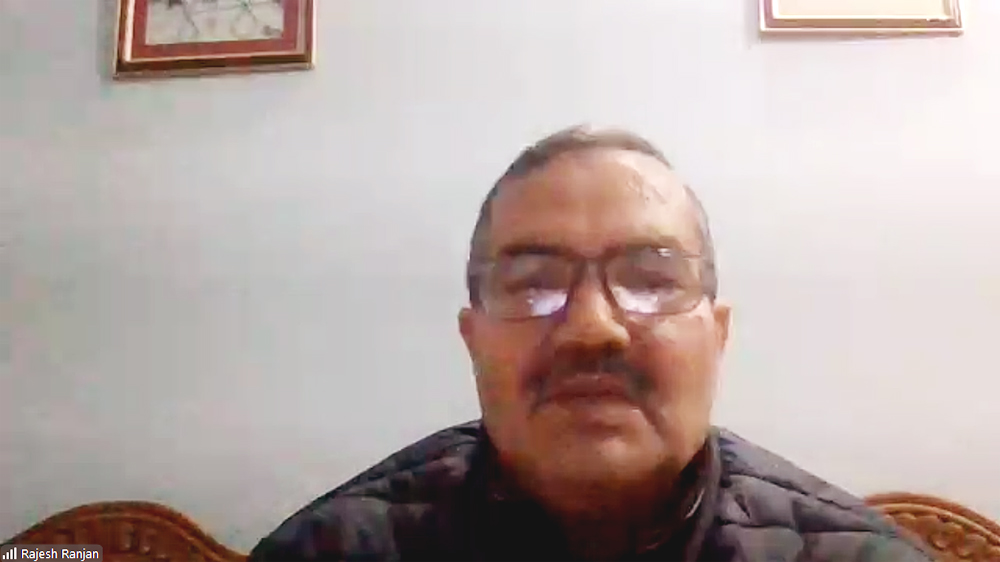
Prof. Rajesh Ranjan, a fellow student of Prof. Singh who is currently employed at the University of Ladakh's Buddhist Studies department, claimed that he was his mentor and Guru. In 2001, Prof. Singh received the President's Medal for his outstanding teaching contributions. He spent two years in researching Buddhist studies and mastering the languages of Pali and Prakrit. He suffered a personal loss at Prof. Singh’s passing. He recommended that an endowment should be established in Nalanda in which the IOS should make a contribution. Prof. Singh started his career in Nalanda, therefore this would be an appropriate tribute to him. He wanted some of the books of his library be donated to a Central University.
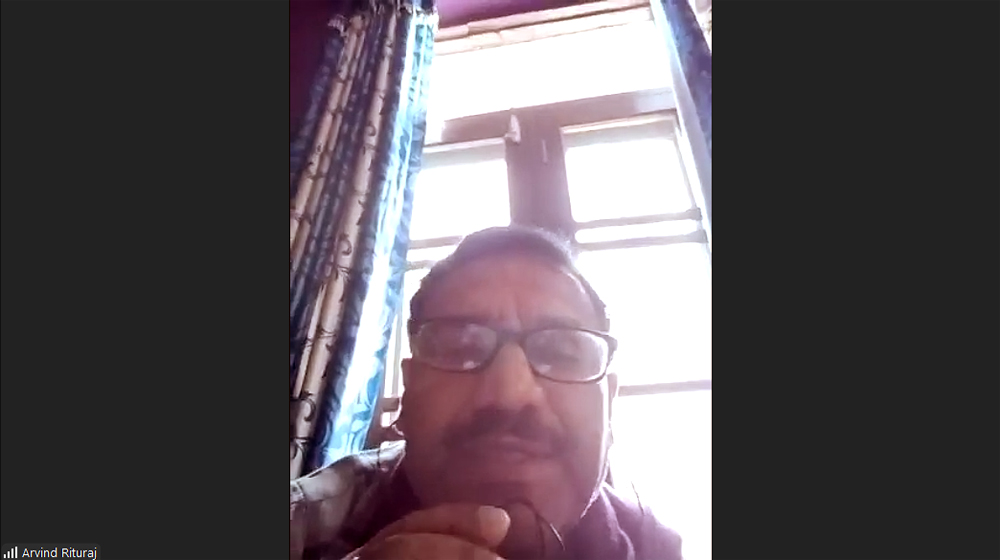
Prof. Arvind Rituraj of the centre for Comparative Religions and Civilizations, Central University of Jammu, held that he joined Prof. Singh in 1993 after moving from Nalanda. An old association he had with Prof. Singh ended with his passing. He remembered that Prof. Singh had pointed out certain errors in his doctoral thesis when he had given it to him. He had been advised by Prof. Singh to work on the ancient Indian communication system. He worked fearlessly and without favour. He liked to visit people and give them an explanation of the social awakening movement.
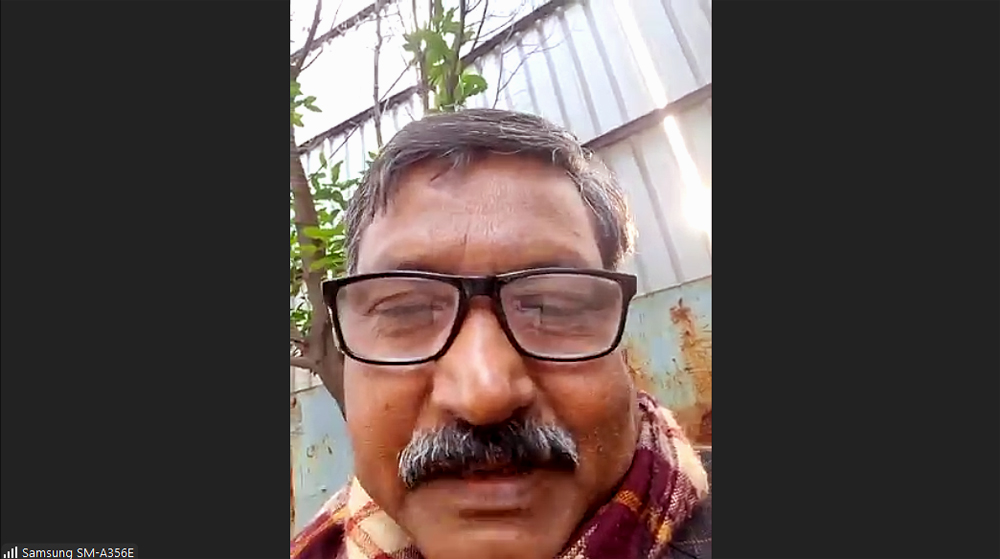
According to Prof. C. S. Paswan, a former professor of Buddhist Studies at Gautam Buddha University in Noida, he studied under Prof. Singh from 1993 to 1994. He was a rigorous administrator who followed the law. His mentor during the M.Phil., program was Prof. Singh. He said that he was working on Dalit Chetna (awakening). He studied the Jatakas of Mithila for his doctorate. He had a close relationship with Prof. Singh.
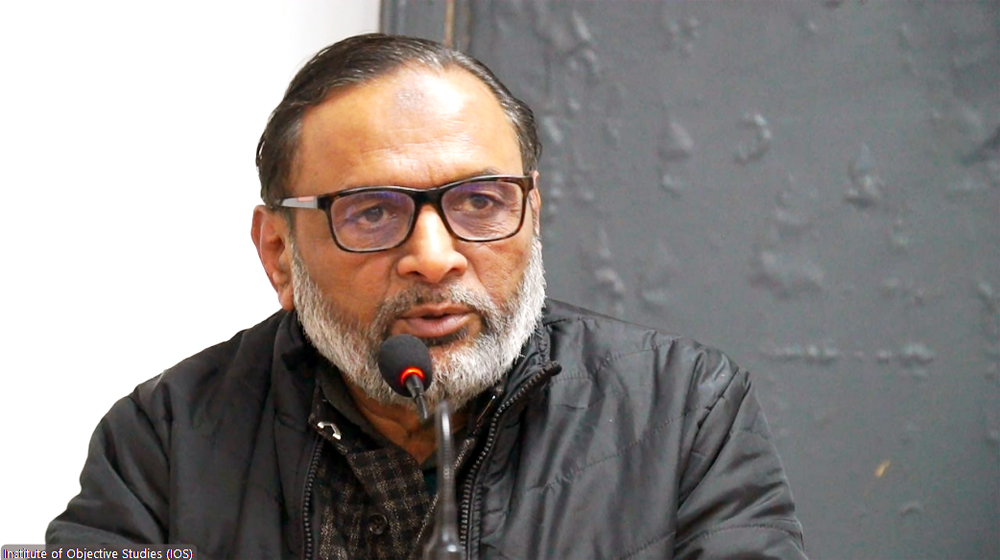
Dr. Syed Qasim Rasool Ilyas, a journalist and social activist, believed that Prof. Singh was among those who had been associated with the IOS since its inception. He also acknowledged the work of the late Abdur Rasheed Agwan, one of the IOS's former secretary generals. He mentioned that the IOS brought scholars together. He was an expert on comparative religions and a patient listener. He studied Islam as well. He worked on Sanskrit and Pali languages. He had a friendly relationship with Prof. Singh personally.
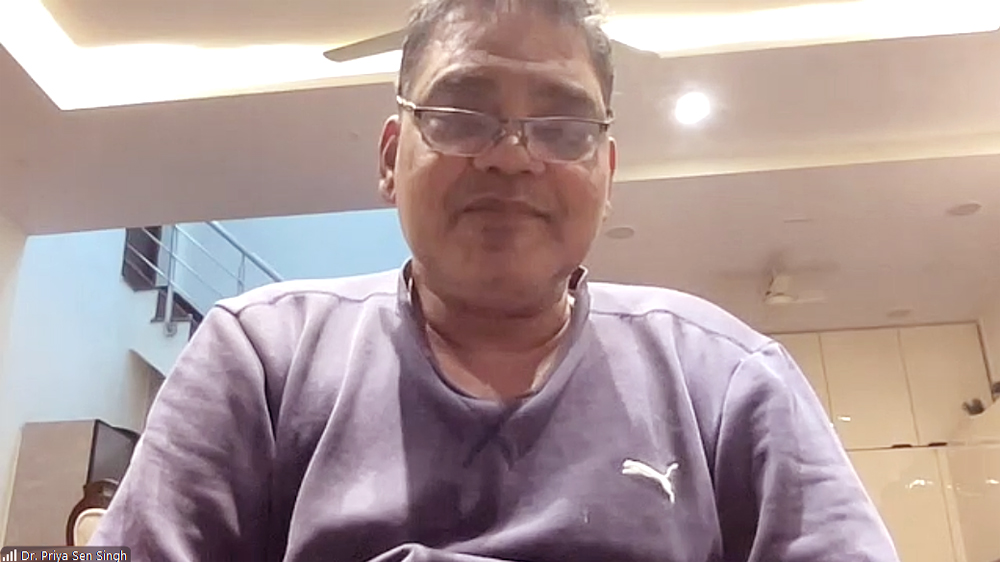
Prof. Priyasen Singh, the son of Prof. Sanghasen Singh, stated that he has been involved with the IOS for the past 28 years. He spent a lot of time away from home. He was well-versed in India's ancient history and culture. He never stopped researching and educating. He said that he had family relations with Dr. Mohammad Manzoor Alam.
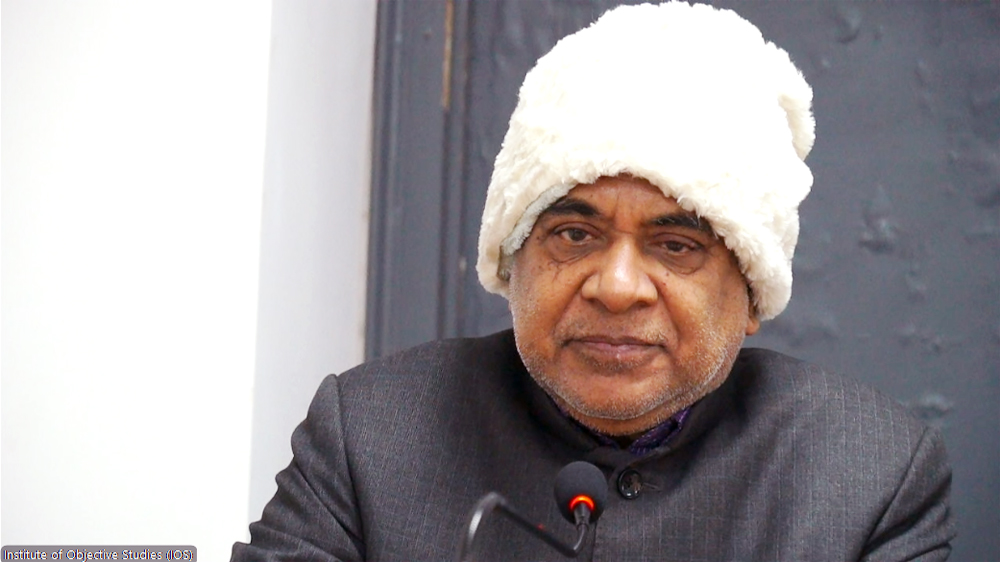
Mr. A. U. Asif, a senior journalist, noted that Prof. Singh's pupils themselves became expert in their fields. He would greet guests at his house with warmth and hospitality. He did exhaustive work on Buddhism. He was multilingual in thirty languages, and the younger generation would eventually cite him. He claimed that unless people mastered the language, they would not be able to completely comprehend religion and culture. He continued the Buddhist writings of renowned author, writer, historian, and traveller Rahul Sankrityayan. He was credited with conducting Prof. Singh's interview a few years ago. According to him, Buddhism was unable to gain any traction in India due to the country's deeply ingrained social cohesiveness. However, Islam has the potential to sustain in India. Many academics, including Prof. Sanghasen Singh, were drawn to the IOS. He mentioned that he studied Islam as well and got extremely close to it.
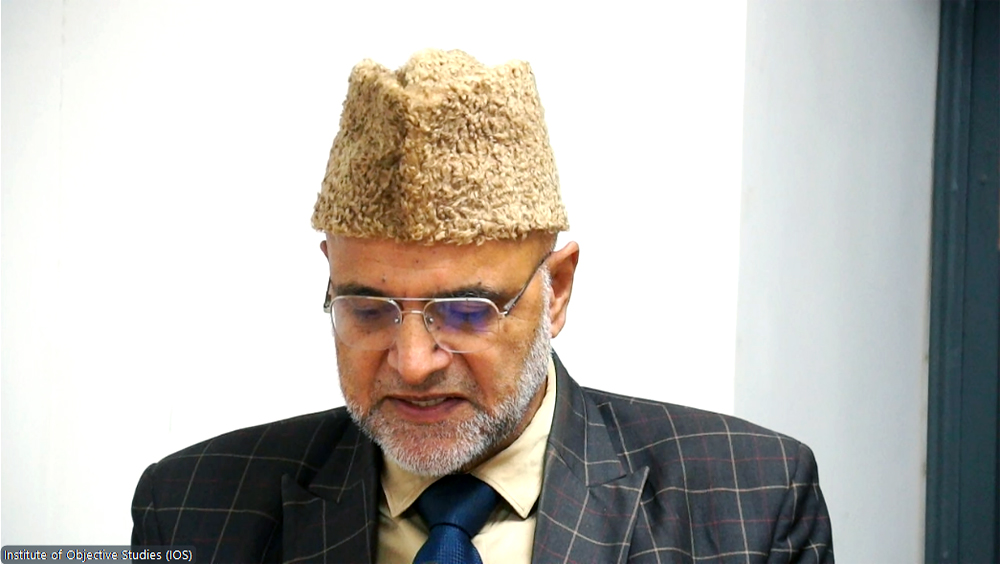
Prof. Hamidullah Marazi, a former professor of Islamic Studies at the Central University of Kashmir, claimed to have collaborated with Prof. Singh on the book Assam: From Agitation to Accord (1988). He was acquainted with Prof. Singh during his time at JNU. To improve mutual understanding between the two religions, he advocated for interfaith discussions between Muslims and Hindus. The IOS Forum for Interfaith Dialogue was established in 2015 with this goal in mind. In the past, Prof. Singh would urge the forum members to continue their work. Additionally, he urged greater comprehension and collaboration with Buddhism and Jainism. He pointed out that Prof. Singh organised a number of programs centred on interfaith discussion.
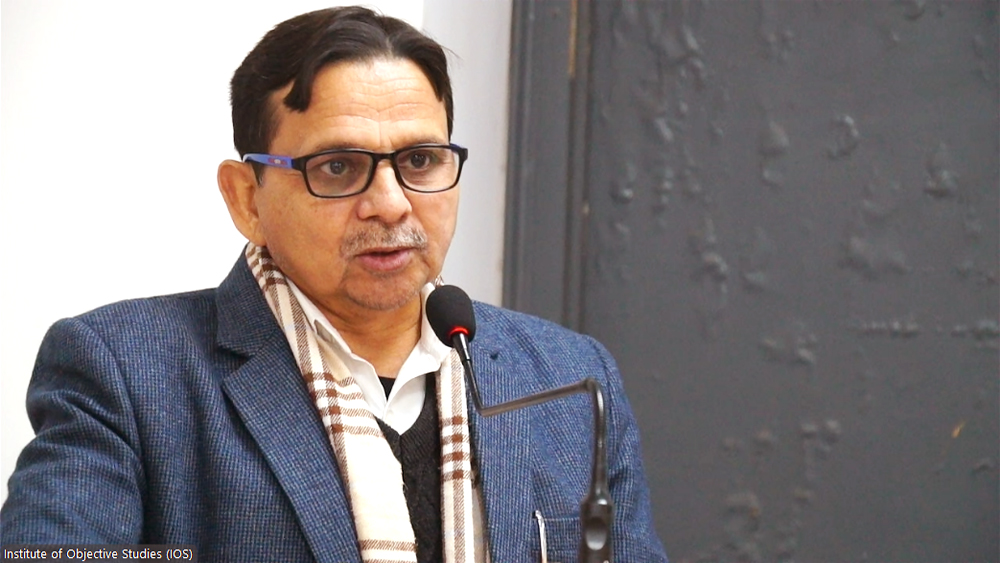
Dr. Muzaffar Husain Ghazali, a writer and journalist, recalled his meeting with Prof. Singh at Delhi University while was pursuing his M.Phil. However, the meeting was formalised at IOS. He claimed that Buddhist sermons were delivered in Pali, which is an older language than Sanskrit. Buddhism was therefore unable to endure due to the Sanskrit language. He stated that Prof. Singh was a supporter of interfaith dialogue.
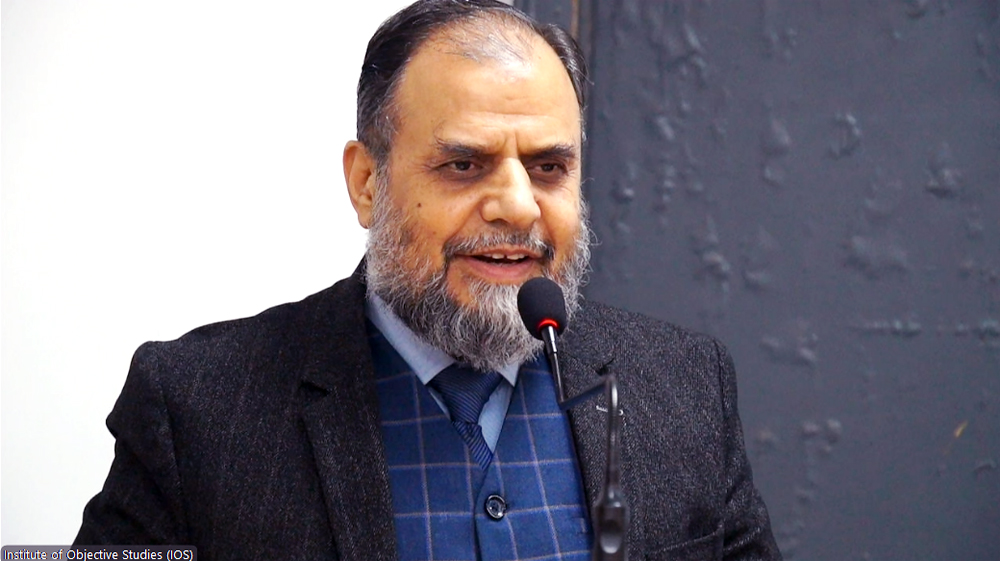
Prof. M. Afzal Wani, the Chairman of the IOS, characterised Prof. Singh as a bearer of great Indian traits, such as behaviour and culture, in his presidential remarks. He was the epitome of scholarship and knowledge. "They can help us, and we can learn a lot from his students, he added." He made reference to interfaith discussions, saying that they had a hold on individuals. Religious ambassadors were among those present at the discussions. The IOS would sign Memorandums of Understanding with universities to advance such concepts. According to him, Prof. Singh was aware of a number of religions, including Islam. It is important to avoid dilution of faith and to have personal conversations. He was aware of the nation's social and cultural structure. Despite his vast knowledge, he maintained composure. There was therefore much more to be done and comprehended. Additionally, Prof. Singh possessed a thorough mastery of Qur'anic knowledge. He got associated with faith. Interfaith discussions should go on, Prof. Wani emphasised. He further promised that Prof. Singh's legacy would be continued by the IOS.
At the end of the programme, Prof. (Ms.) Haseena Hashia extended a vote of thanks to the attendees.
Go Back